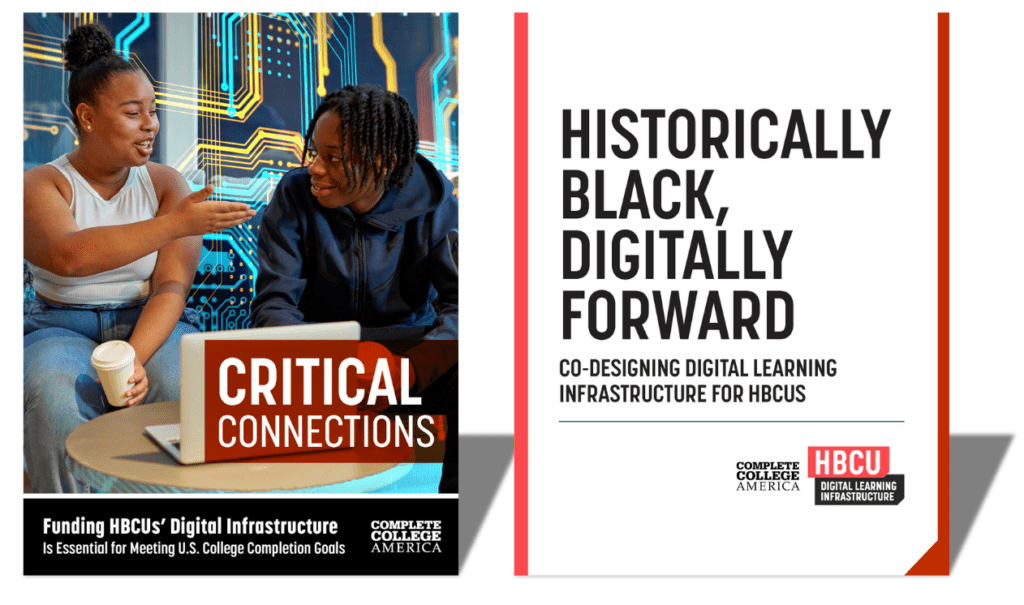
Historically Black Colleges and Universities (HBCUs) have been doing more with less for more than 150 years. Despite chronic underfunding, these institutions are engines of economic mobility for historically excluded students. When all variables are held constant, the graduation rate of Black students is 11 percentage points higher at HBCUs than at other colleges and universities.
HBCUs have achieved this success because they create a sense of belonging in a culturally affirming environment and provide unparalleled student engagement and support. But now, HBCUs must adapt their model to the post-pandemic world in which all colleges operate, which is increasingly online and driven by artificial intelligence (AI).
In these reports, Complete College America examines the critical role of digital learning infrastructure (DLI) at Historically Black Colleges and Universities (HBCUs) and its impact on student success. Critical Connections calls for increased capital funding and investment in DLI at HBCUs, while Historically Black, Digitally Forward highlights the faculty, staff, and student voices calling for digital innovations at HBCUs.
